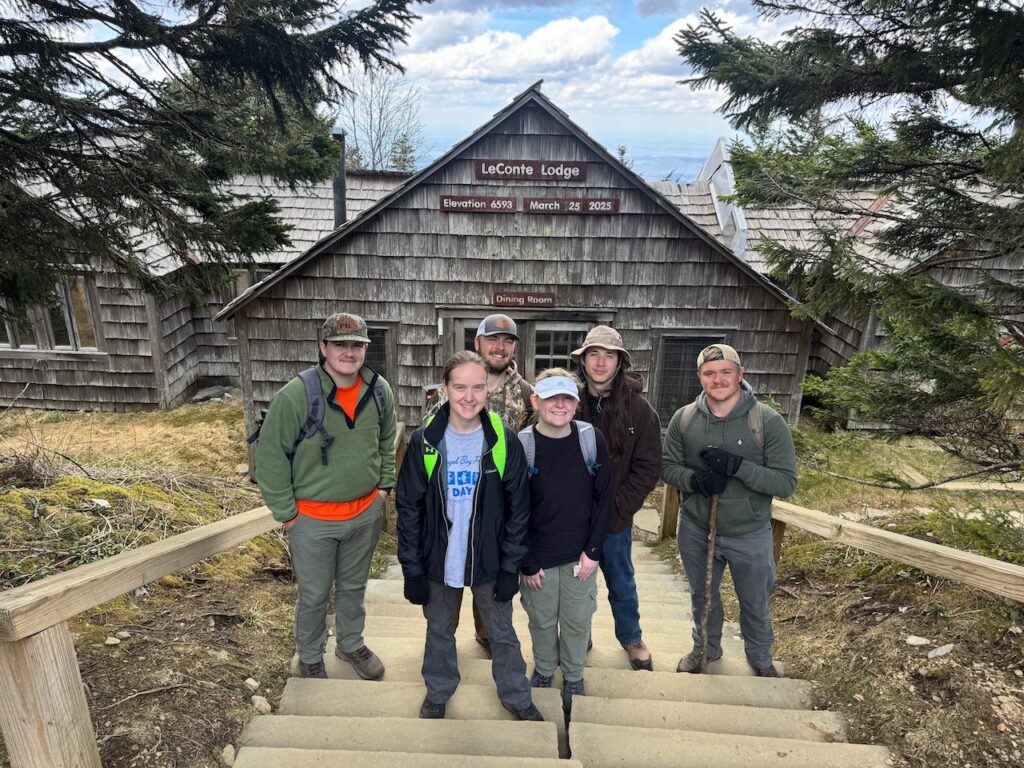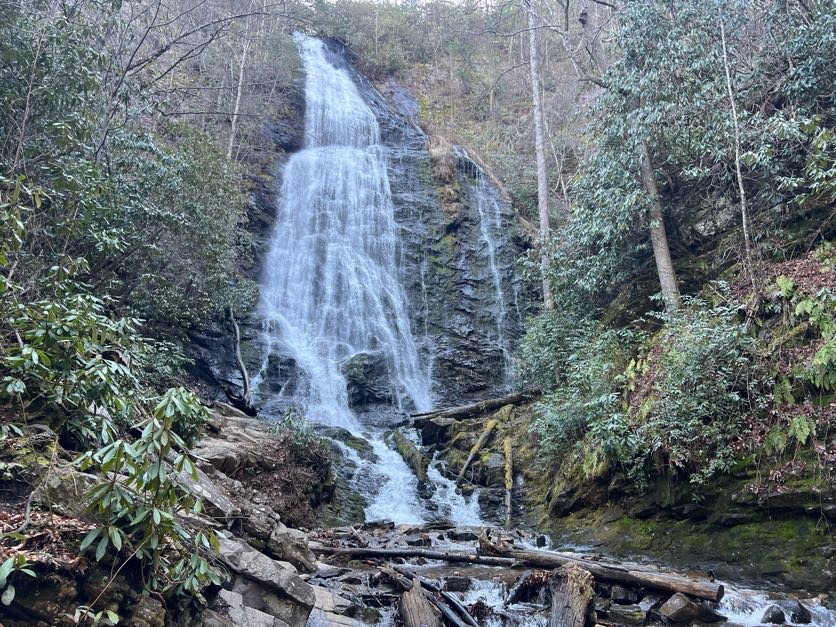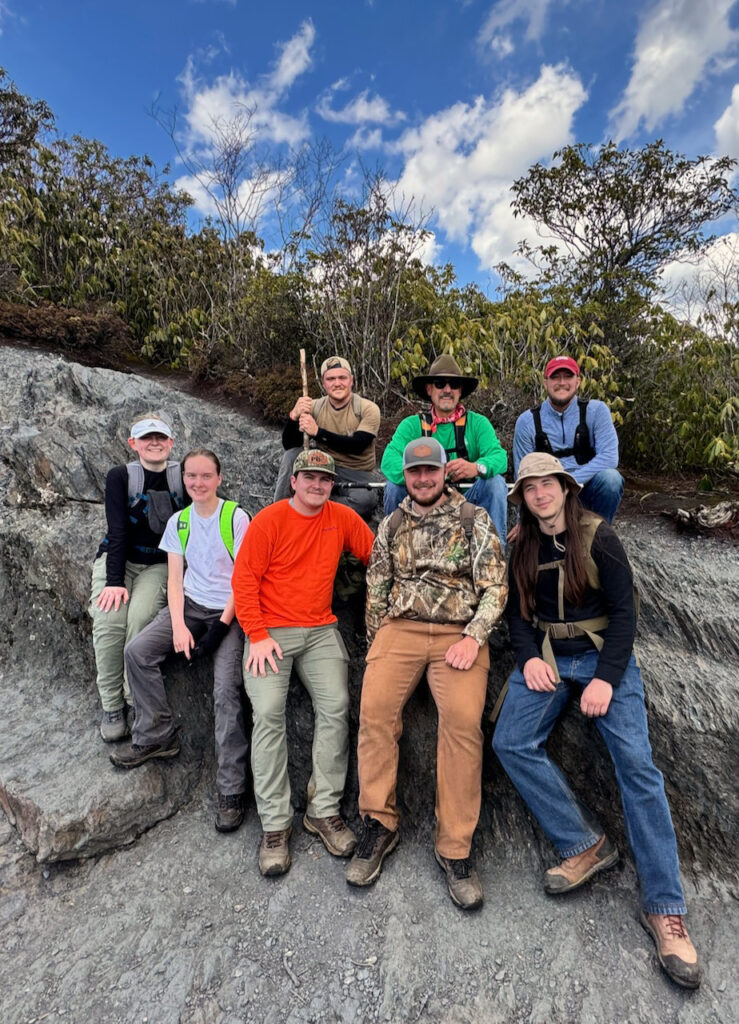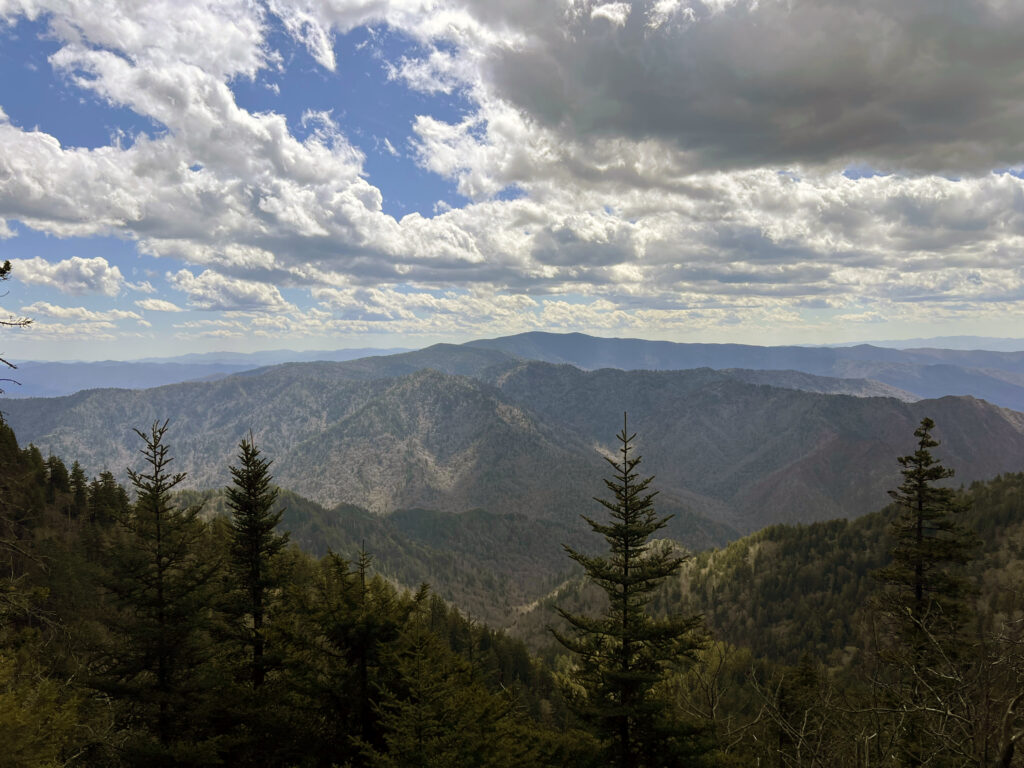
Story: Lisa Sollie
UWA students explore Great Smoky Mountain National Park
Not all learning happens in the classroom. Students in Dr. Lee Stanton’s Appalachian Ecology course at the University of West Alabama recently took their education outdoors with a seven-day field trip to the Great Smoky Mountain National Park.
Stanton, a biology professor at UWA, led the group—including Ethan Burke, Will Clark, William Galloway, Claire Hall, Emma Hartley, Michael Kochensparger, and Ryan Stanley—hiking nearly 60 miles through six distinct ecological zones. From Classic Cove hardwood and Hemlock forests at lower elevations to high-altitude spruce-fir forests, students also passed through northern hardwood, Successional forest, and pine-oak zones. The goal was to gain firsthand insight into the region’s diverse plant life.
But the experience wasn’t just about ecology. Stanton said students also explored the deep human history of the area, where both Native American cultures and early European settlers shaped its development. For conservation enterprises major Emma Hartley, that connection stood out. “From the indigenous peoples to modern society, all have relied on this region’s abundant biodiversity and natural resources,” she said.



The scale and beauty of the park left a strong impression on conservation and field biology major Will Clark, who describes being “awestruck by the size of the mountains and the incredible scenery” he witnessed on the trip.
Ethan Burke, also studying conservation and field biology, reflected on the camaraderie and discoveries made along the way. “The adventures and memories will stick with me forever,” he said.
Helping organize and support the trip was Dr. Kevin Morse, an associate professor of biological sciences and the logistical and field support coordinator for the College of Natural Sciences and Mathematics at UWA, who has played a key role in coordinating this field experience for over a decade.
For Ryan Stanley, another conservation and field biology major, this trip deepened his understanding of natural processes. “Transformation in nature doesn’t follow a clear beginning, middle, and end,” he said. “All three are happening simultaneously. As future stewards, we must ask: Will nature resolve issues independently, or will human intervention be needed?”
Environmental science major Claire Hall was surprised by her endurance during a demanding 16.2-mile hike completed in just nine hours. “I realized I’m more resilient than I thought,” she said.
After a week in the Smokies, students say they walked—or hiked—away with a deeper understanding of the environment and their role in studying and protecting it.